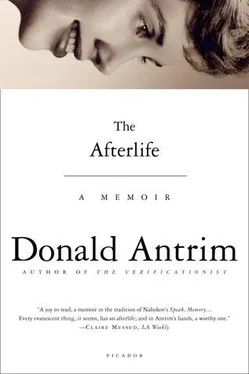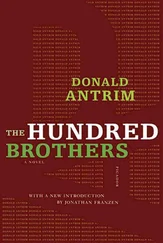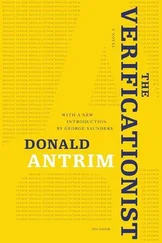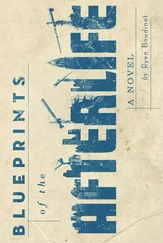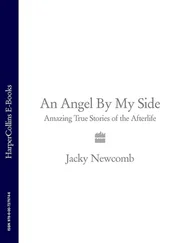One aspect of the problem, however, had me bothered. For many years, back in the days when she was drinking, my mother (in the manner of so many high-functioning alcoholics who get a lot done) had run a college department that specialized in costume history, fashion design, and textile chemistry. She knew how to date a fabric sample. Or, if she didn’t know how to do it herself, she knew how to contact people who did.
I asked her about this. “Mom, does that canvas seem to you to be about five hundred years old?”
“It’s so hard to tell, Don.”
“What do you think?”
“I don’t know.”
“Can’t you take a piece over to the University of Miami and see if anyone there can subject it to some tests?”
“Oh, I couldn’t.”
“Why not?”
“I need to respect the fact that this is not my affair.”
“You don’t want to find out, do you? You don’t want to know!” I said to her at some point along the way.
Most likely, I was getting squared off to pick a fight with K., who, in fact, had been more than decent about this whole enterprise.
“How’s your mother?” K. would sometimes ask, when she saw me stagger off the phone like a person who’d drunk from a goblet that had smoke billowing over its rim.
“They’re out of their minds! They’re out of their minds! Leonardo da Vinci? Fuck me!”
“Donald, you knew it was insane.”
“I know.”
“So what’s the surprise?”
“It’s not — it’s not that it’s a surprise . It’s not a surprise.”
“Okay? So?”
K. had a point. Unfortunately, an understanding of reality is a liability in a situation in which reality is inadmissible — or, rather, in a situation in which people’s feelings and hunches, their hungers and appetites, serve as reality. Hidden inside the unfolding narrative of the painting — a narrative not only of feelings and hunches but also of grandiose hopes and dreams — was, I felt, the story of my alcoholic family. This story, now being told through the story of a moldy old painting that might , until shown otherwise, be a Leonardo da Vinci, was, I thought, a story in which pretty much everything that could ever happen in life — everything that could come true tomorrow, or the next day, or the day after that — might, until shown otherwise, be the miraculous, transformative thing that, like a great work of art, brings us closer to salvation.
“Your mother,” K. would say to me whenever I got off the phone. Then she would sigh.
A few years before S. undertook his pilgrimage to the art libraries of New York, I boarded a plane and flew to Miami to visit my mother. It was a trip I had been looking forward to. In some ways, I suppose, I had been looking forward to this trip for much of my life. The time had come, my mother and I had agreed, for us to have a talk about our past. Specifically, she had invited me to sit at the table and tell her what it had been like, during the years in which she’d lived in and out of a blackout, to be her child.
It was, as I recall, the week of Thanksgiving. My grandparents were driving down from North Carolina. They, S., and I were gathering at my mother’s apartment to give thanks for her relatively new sobriety, which, however insecure, had nonetheless been hard won.
A night or two before this celebration was to take place, I sat in the dining room with S. and my mother. I suppose I must have been twenty-seven years old at the time. I remember — and I should have been more savvy about these kinds of signs and portents — that the two of them sat in chairs that had been pulled out from the table and pushed hard against the dining-room wall. I, on the other hand, sat in an improvised place lacking defined coordinates — the ambiguous middle of the room. In the scene as it was set, my mother and S. were positioned like heads of state, listening, in their official capacity, to the appeals of a supplicant. But they were also a couple of nervous alcoholics with their backs to the wall, waiting to be attacked. As usual, my mother was smoking up a storm. Her ashtray, her cigarettes, her lighter, and her coffee in its brightred mug sat close to her on the table. Somewhere in the apartment, her fluffy white cat with a skin disease was lurking.
“Don, I want you to know that I know there are things you need to say to me,” she said. And I had to wonder: What was he doing here? She leaned forward. “You go ahead.”
“Um.”
“I suspect you must be upset and curious about some things.”
“Yeah.”
“I’ve got a lot of serenity in my life now, so I can hear you.” She turned to S. “Isn’t that right?”

“Do you have serenity, Don?” my mother asked me.
“I don’t know. Maybe. Yes and no.”
“That doesn’t sound like serenity.”
“I guess it’s something I’ll have to work on.”
“You’re angry.”
I sighed. Things weren’t getting off to a good start. I said to my mother, “Really, I just wanted to be able to say a few things.”
“I’m listening.”
“I was hoping we’d talk. About the way things were when Terry and I were little. When we were growing up.”
But what, after all, did I want to tell her? Did I want to tell her how scary she’d looked to me when she was drunk? Did I want to tell her what it had been like to lie awake at night, waiting for the house to be quiet? Or did I want to tell her that I, her son, lived every day with the fear that I would never know how to love another person? Were these the kinds of things that a man could say to his mother? Were these the kinds of things that a man could say to his recovering-alcoholic mother while her recovering-alcoholic boyfriend was sitting beside her?
I sat in my chair. They sat in their chairs. Not one of us, I think, was serene. Everywhere on the white walls of my mother’s condominium were the framed Art Deco prints that my father had bought for her, fashion illustrations by Icart and Erté, and a large series of magazine plates of the sort that had been featured in popular French publications of the early twentieth century. The plates showed women wearing improbable dresses and enormous hats, some of them walking the favored dogs of the day, borzois and other distinguished breeds. This was my mother’s art. It was from a period in history, and represented a set of styles, that she loved. I now have most of it — about a dozen pieces — in my apartment in New York, wedged behind furniture, propped against walls, where it can’t easily be seen. For a while, after my mother died, I tried hanging one of the Icarts, a beautiful illustration of a woman undressing in a darkened bedroom. I gave it a prominent place over a low sofa in the living room. But after a while I couldn’t bear to look at it. I had to take it down and put it away.
That night in Florida, the night in the dining room, I watched my mother smoke her cigarettes and drink her coffee. Every now and then, she reached downward and made tiny come-hither motions with her hand, in the direction of the cat, which stood off in the shadows, as if uncertain whether it was safe to come all the way into the room. I had watched my mother smoke cigarettes and drink coffee my entire life. Never at night, though. At night it had been Jim Beam in a large glass.
She said to me — and I could hear, again, that nasal, southern-Appalachian sound in her voice—“Everything you want to talk about is in the past.”
“I know.”
“Why do you need to live in the past?”
“I’m not living in the past.”
“You are. You live in the past. I’ve let the past go. I don’t live in the past. I won’t.”
Читать дальше
